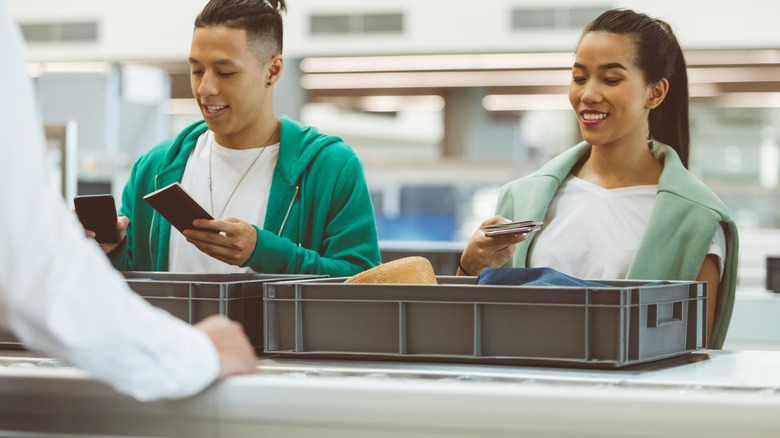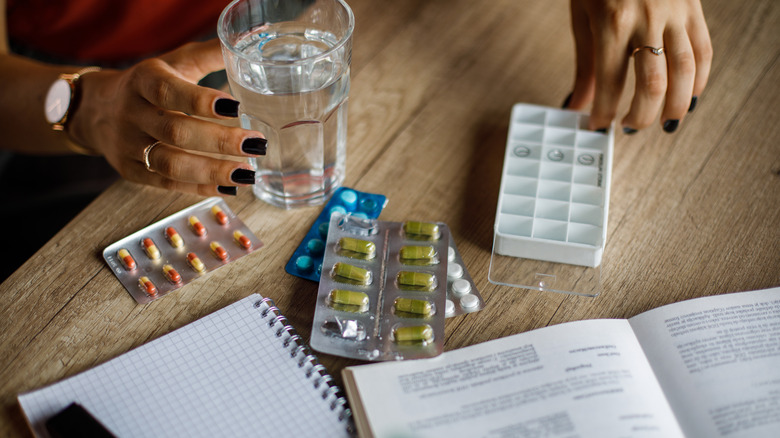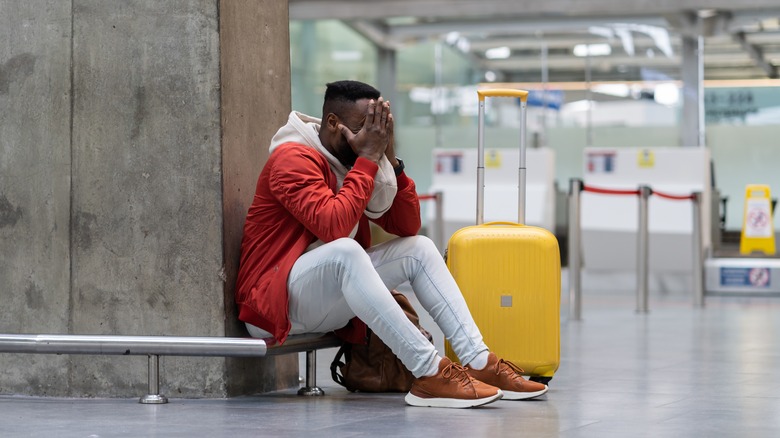Why You'll Think Twice Before Bringing Medicine In A Non-Labeled Bottle Through TSA
Traveling with medication can be tricky, especially if you plan to fly to your destination. Your medicine will have to comply with TSA regulations, and some substances, such as liquids and powders, may require additional screening.
It's also important to carefully pack your medicines to avoid losing them or getting them mixed up. One of the best ways to sidestep issues is to keep all your medicines together, such as in a zipper bag, and secured in their original containers. The original packaging makes it easy to remember what you packed and how to properly take it.
Keeping medicine in its original box or bottle may also be necessary to avoid getting stopped by an airport security agent. Technically, TSA states on its website that it doesn't require travelers to keep medicines in their original packaging or prescription bottles. However, there's an important catch you should be aware of before packing for your upcoming trip: Different U.S. states have different rules.
Some destinations don't allow unmarked medicines
If you keep all of your medicine in an unlabeled baggy or a convenient pill dispenser, you might run into trouble when traveling by air. Though TSA's official stance is that these forms of packaging are okay, some U.S. states feel differently about traveling with unmarked medicines — and airport security personnel will expect passengers to comply with local laws. For example, Texas, Georgia, Missouri, Louisiana, and a handful of other states require passengers to keep any controlled substances (including some prescription drugs) in their original labeled bottles provided by the pharmacy. That means that even if your home state doesn't have a rule on how to pack your medicines, the state you're traveling to might. To be safe, keep your medicine in the container it came in.
This simple tip is even more important when traveling internationally. Some common medicines are banned in other countries, including over-the-counter remedies. Traveling with the original labels helps airport inspectors determine which substances can be allowed through and which should be confiscated. Even if you're sure your medication isn't breaking any rules, security agents won't know unless the package is clearly labeled.
What happens if you don't fly with the original packaging?
The best way to avoid a stressful encounter in the TSA security line is to keep medication stored in its original packaging and, for prescriptions, to make sure that those labels contain your name as it's written on your passport and travel documents. For even more assurance, ask your doctor for a note explaining what each medicine is used for.
If you don't follow these recommendations, your medication may be confiscated, or, if they require additional screening before being allowed through, the extra time could cause you to miss your flight. In your destination, you could also be fined or arrested for carrying a prescription considered to be a controlled substance if you fail to provide proper documentation.
Keep in mind that you're not automatically off the hook just because your medicines are kept in their original packaging. If you're traveling abroad, remember to check official embassy websites to ensure your medicine won't land you in hot water during your vacation. Traveling with a banned drug, whether labeled or not, could lead you to spending years in jail overseas.


